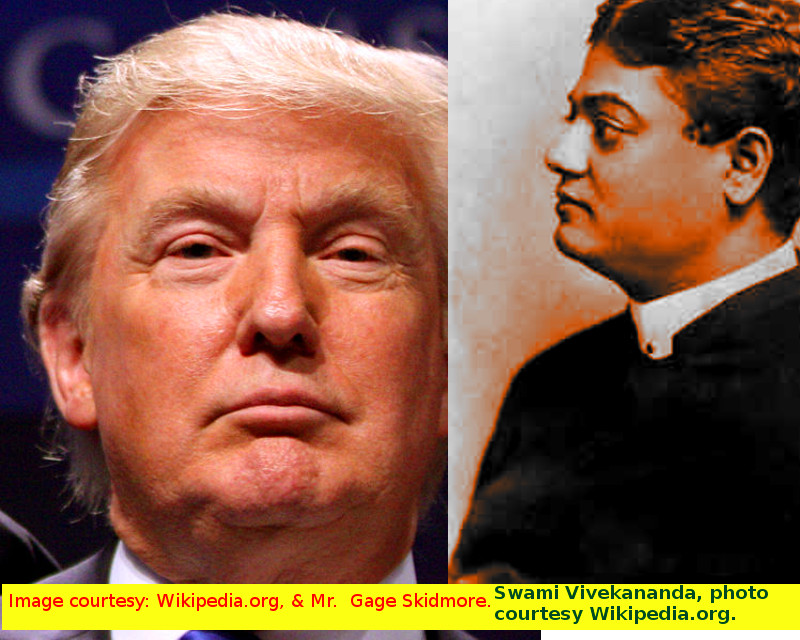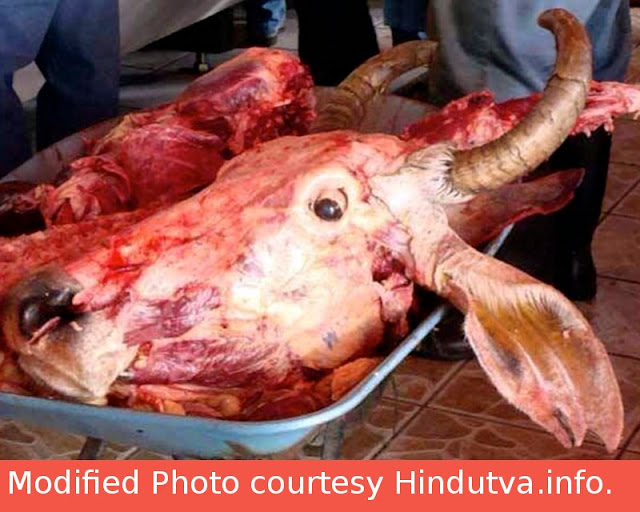276 I only pray the non-existing God, that this particular author ought to have read my blog TOO, inter alia his other materials
The following is a link to oup.co.in (presumably Oxford University Press) which contains a review of a book on Swamy Vivekananda, published by them.
http://www.oup.co.in/product/academic-general/philosophy-religion/religion/274/debating-vivekananda-reader/9780199450688

This book is priced at Rs. 1,195/- (obviously a euphemism for 1200 bucks. Hindi: स्पष्ट है, बारह सौ रूपये कठोर पद स्थान पर मधुर पद १,१९५). It is definitely beyond my reach and probably beyond the reach of people in India, Pakisthan, Sri Lanka, Bangla Desh, Nepal, Bhutan, Myanmar and Indonesia (Indian Sub-Continent).
Hence, I cannot afford to buy it and read it. Hence, I cannot write any review on it. Details of the author, number of pages etc. are given below.
Debating Vivekananda: A Reader
Author(s): A. Raghuramaraju
9780199450688
215 X 140mm
Hardback
13 Oct 2014
542 Pages
Price: 1,195.00
Printer Friendly
Available for sale.
Those who want to buy, can buy at the OUP website.
More details about the author as per the OUP website: A. Raghuramaraju is Professor, Department of Philosophy, University of Hyderabad. He has published widely in the areas of social and political philosophy and Indian philosophy. University Grants Commission recently appointed him as Principal Investigator for e-content development for Philosophy for its e-PG Pathshala.
The review at the OUP website has a tab called contributors. I quote the contributors details from that review.
WHAT YBRAO A DONKEY HAS TO SAY ABOUT THIS contributors' list, APART FROM SAYING THAT HE CAN'T AFFORD TO BUY THE BOOK
1. Among the above contributors, our freedom leaders like Lokmanya Tilak, Jawaharlal Nehru, might not have had time to read the Complete Works of Swamy Vivekananda, as they were busy leading the freedom struggle. Besides they were writing books like Gita Rahasya, Discovery of India.
2. I am sad that I have not read the books of the above contributors. I am unable to say anything about them.
3. About the author: I only wish, that Shri Raghuramaraju and the Editors of the OUP read this blog. If they were to read this blog, how they will react? It may be interesting to know. This will never happen; hence I have used the subjunctive impossible mood "If they were to read".
http://www.oup.co.in/product/academic-general/philosophy-religion/religion/274/debating-vivekananda-reader/9780199450688

This book is priced at Rs. 1,195/- (obviously a euphemism for 1200 bucks. Hindi: स्पष्ट है, बारह सौ रूपये कठोर पद स्थान पर मधुर पद १,१९५). It is definitely beyond my reach and probably beyond the reach of people in India, Pakisthan, Sri Lanka, Bangla Desh, Nepal, Bhutan, Myanmar and Indonesia (Indian Sub-Continent).
Hence, I cannot afford to buy it and read it. Hence, I cannot write any review on it. Details of the author, number of pages etc. are given below.
Debating Vivekananda: A Reader
Author(s): A. Raghuramaraju
9780199450688
215 X 140mm
Hardback
13 Oct 2014
542 Pages
Price: 1,195.00
Printer Friendly
Available for sale.
Those who want to buy, can buy at the OUP website.
More details about the author as per the OUP website: A. Raghuramaraju is Professor, Department of Philosophy, University of Hyderabad. He has published widely in the areas of social and political philosophy and Indian philosophy. University Grants Commission recently appointed him as Principal Investigator for e-content development for Philosophy for its e-PG Pathshala.
The review at the OUP website has a tab called contributors. I quote the contributors details from that review.
Nemai Sadhan Bose (1931-2004), Guru Nanak Research Professor, Asiatic Society, Calcutta. He was also Professor at Jadavpur University and later became Vice-Chancellor of Visva-Bharati in 1984. His books include Indian Awakening and Bengal and Swami Vivekananda.
Indira Chowdhury is a scholar-in-residence at the Srishti School of Art, Design and Technology where she has initiated the Centre for Public History. Formerly professor of English at Jadavpur University, Kolkata, she has a Ph.D. in history from the School of Oriental and African Studies, London. Her book The Frail Hero and Virile History was awarded the Tagore Prize in 2001. She translated Ashapurna Debi's major novel, The First Promise in 2004. Her interest in lexicography led her to compile the Indian English Supplement included in the Oxford Advanced Learner's Dictionary in 1996. She is responsible for setting up the Archives of the Tata Institute of Fundamental Research, Mumbai, Dr Reddy's, and Indian Institute of Management,Calcutta among others. She has curated several archival exhibitions at TIFR, IIMC, and IMSc. In 2006, she was awarded the New India Fellowship to write an institutional history of TIFR.
Vrinda Dalmiya teaches Philosophy at the University of Hawaii at Manoa. Her research interests include epistemology, feminist care ethics and environmental philosophy. She has worked in the emerging field of Comparative Feminist Philosophy and attempts to initiate a dialogue between the Mahabharata and contemporary feminist thought. She has published in numerous journals in these areas.
Prabha Dixit, retired from Department of History, Miranda House, Delhi University.
Paul Hacker (1913-1979) was one of the most important German Indologists.
Wilhelm Halbfass (1940-2000) was Professor of Indian Philosophy at the University of Pennsylvania. He is the author of India and Europe: An Essay in Understanding, On Being and What There is: Classical Vaisesika and the History of Indian Ontology, and Tradition and Reflection: Explorations in Indian Thought.
Krishna Prakash Gupta holds a Ph.D. in Sociology from Harvard.Formerly, Professor at the Department of East Asian Studies,University of Delhi. Currently, a Think Tank consultant.
D.H. Killingley taught in the University of Malaya, Kuala Lumpur, and Newcastle University, England. He was also Visiting Professor in the University of Vienna. He is the author of Rammohun Roy in Hindu and Christian Tradition (Newcastle upon Tyne, Grevatt & Grevatt, 1993) and Beginning Sanskrit (3 volumes, Newcastle upon Tyne, Grevatt & Grevatt, 2004-2006). He recently contributed a chapter on Vivekananda to Gurus of Modern Yoga, edited by Ellen Goldberg and Mark Singleton (New York: Oxford University Press, 2013).
Jawaharlal Nehru (1889-1964), a well-known writer, statesman, and the first Prime Minister of independent India.
Carl Olson is Professor of Religious Studies at Allegheny College in Meadville, Pennsylvania, USA. He is the author of 17 books and over 200 book reviews and essays, including books such as The Mysterious Play of Kali: An Interpretive Study of Ramakrishna, The Many Colors of Hinduism and the most recent The Allure of Decadent Thinking: Religious Studies and the Challenge of Postmodernism (Oxford University Press, 2013).
Nirmal Mukherjee. Editor's Note: I have not been able to get the institutional affiliation and other details of Nirmal Mukerjee. In case I get any information I will get it incorporated in the subsequent reprints.
Ashis Nandy is a deprofessionalized psychologist and political analyst who also delves in future studies. He has been working on genocide and cultural resistances to genocide, alternative cosmopolitanism and languages of dissent. Three of his most recent books are Romance of the State, Time Treks, and Regimes of Narcissism.
Anantanand Rambachan is Professor of Religion at Saint Olaf College, Minnesota, USA. Among his books are, Accomplishing the Accomplished, The Limits of Scripture, The Advaita Worldview: God, World and Humanity, and A Hindu Theology of Liberation (forthcoming).
Sumit Sarkar is former Professor of History at University of Delhi, Delhi.
Brajendranath Seal (1864-1938) classmate and friend of Swami Vivekananda, was a renowned Bengali Indian humanist philosopher.
Jyotirmaya Sharma is professor of political science at the University of Hyderabad. His recent publications include Cosmic Love and Human Apathy: Swami Vivekananda and the Restatement of Religion, HarperCollins, New Delhi, 2013, A Restatement of Religion: Swami Vivekananda and the Making of Hindu Nationalism, Yale University Press, New Haven & London, 2013.
Bal Gangadhar Tilak (1856-1920) is popularly known as Lokamanya. He gave the call for 'Swaraj'. He was a journalist, teacher, and lawyer apart from being an active member in Indian freedom struggle against British rule.
WHAT YBRAO A DONKEY HAS TO SAY ABOUT THIS contributors' list, APART FROM SAYING THAT HE CAN'T AFFORD TO BUY THE BOOK
1. Among the above contributors, our freedom leaders like Lokmanya Tilak, Jawaharlal Nehru, might not have had time to read the Complete Works of Swamy Vivekananda, as they were busy leading the freedom struggle. Besides they were writing books like Gita Rahasya, Discovery of India.
2. I am sad that I have not read the books of the above contributors. I am unable to say anything about them.
3. About the author: I only wish, that Shri Raghuramaraju and the Editors of the OUP read this blog. If they were to read this blog, how they will react? It may be interesting to know. This will never happen; hence I have used the subjunctive impossible mood "If they were to read".



Comments